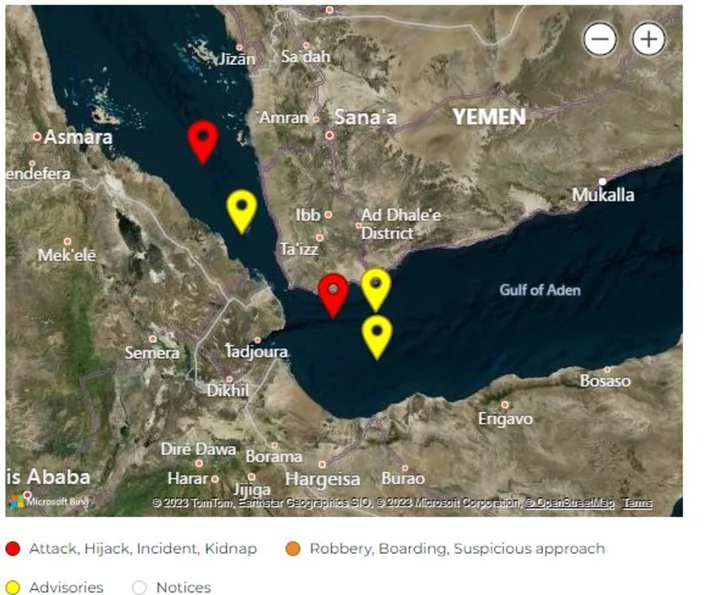A spate of attacks on merchant shipping near Yemen and Somalia, likely triggered by the war in Gaza, have prompted the US to warn vessel operators to be extra careful when navigating the region.
On Nov. 19, Houthis seized of the Galaxy Leader car carrier while a Liberia-flagged chemicals tanker was targeted over the weekend. Both have an Israeli connection. At the same time, there have also been at least four other suspicious approaches to ships in the Indian Ocean in the past few weeks — many of them taking place in the Red Sea or the Gulf of Aden — according to the UK navy.
“Exercise caution when transiting these areas and remain cognizant of evolving threats in this region,” the US Department of Transportation Maritime Administration, or Marad as it’s better known, said in an alert on Monday.
The recent burst of activity risks disruption of a route that’s critical to global trade in everything from commodities to manufactured goods. The waters in question are unavoidable for ships sailing between Europe and Asia via the Suez Canal.
Insurance Risk
Most insurers already charge extra premiums for sailing through those waters and those charges could increase further if the attacks continue, according to Munro Anderson, head of operations at Vessel Protect, a specialist marine war risks underwriter.
“There are still considerable risks faced across the broader market with threats of collateral damage and misidentification always present,” he said.
Some Israeli-controlled vessels have already begun avoiding the region.
Two vessels owned by Ray Car Carriers, the firm that also controls the Galaxy Leader, u-turned in the days after its capture to avoid sailing past Yemen, according to ship tracking data compiled by Bloomberg.
There’s a heightened risk to ships that are Israel flagged, owned or managed, according to UK security company Ambrey.
That includes vessels that have such links over the last twelve months, but no longer do, as there have been incidents of vessels being attacked due to mistaken identity in the past, Ambrey said.
“Such events stand as evidence of wider risks to the broader commercial market when trading in such areas,” Anderson said, referring to the risk of vessels being mistakenly targeted.









